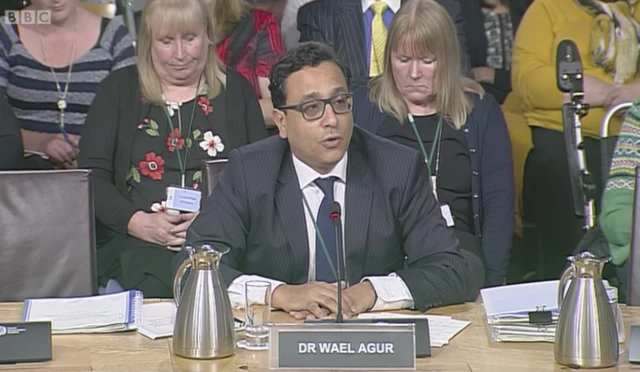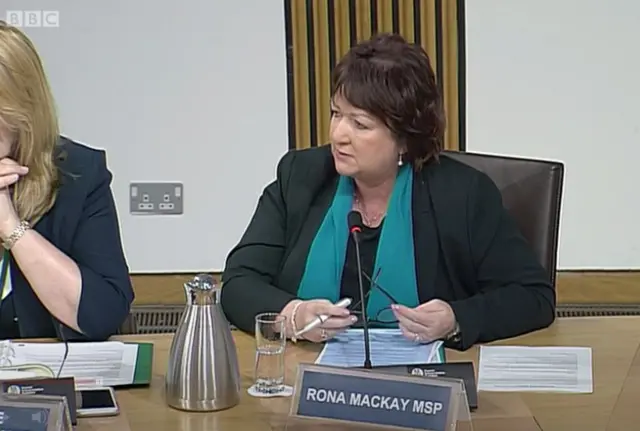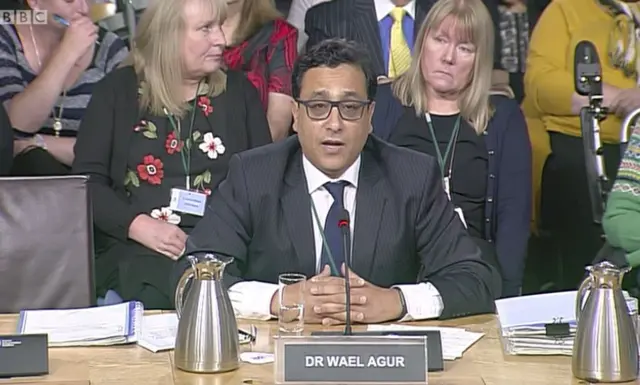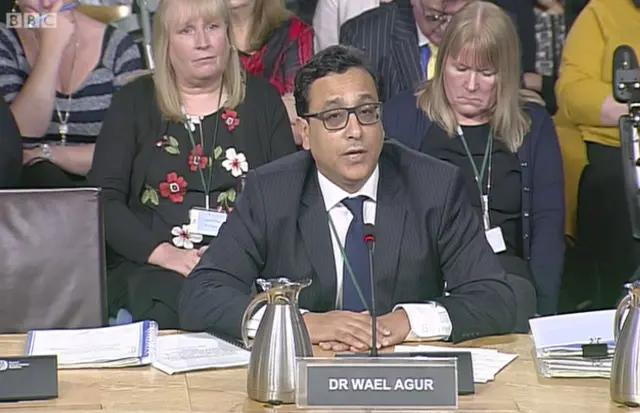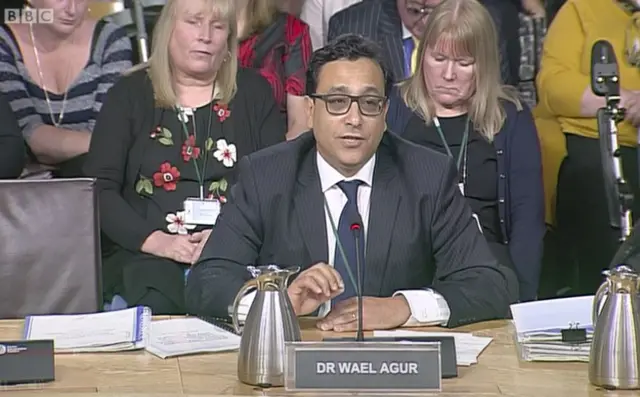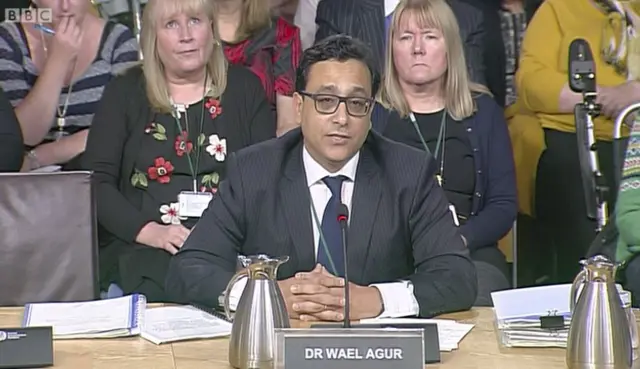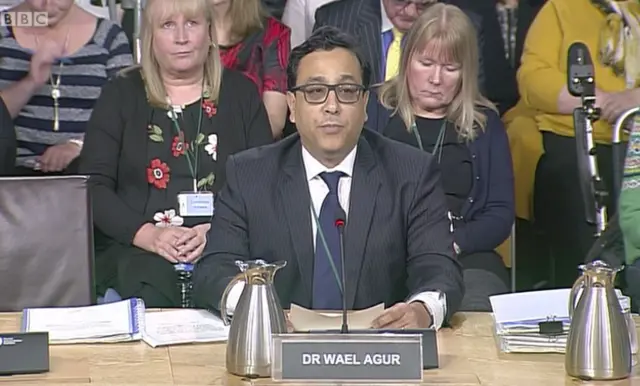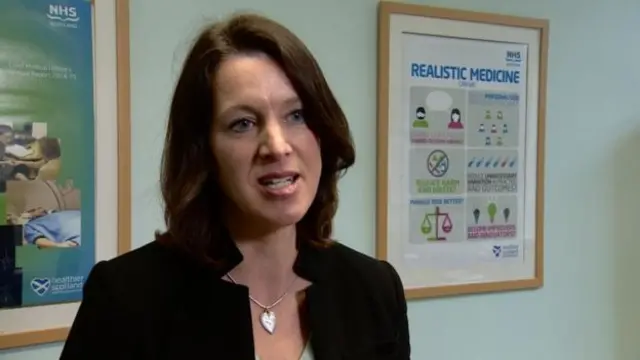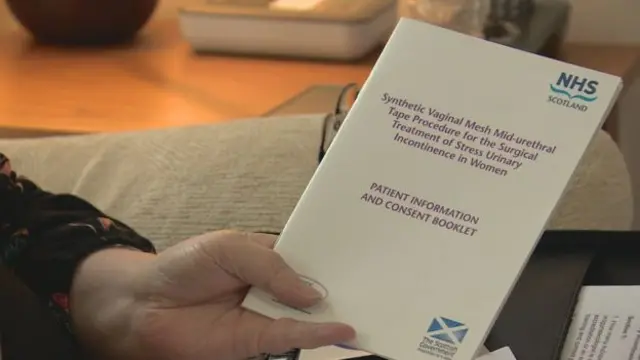'I believe these conclusions could have done more'published at 09:54 BST 28 September 2017
SNP MSP Alex Neil asks if the conclusions of the final report ignore some or all of the evidence.
Dr Wael Agur says: "We could all look at the same thing and see it differently."
He says he was keen to publish the table as it was.
The clinician says he would not be fulfilling his duty as a doctor to reduce harm if he followed the recommendations of the report..
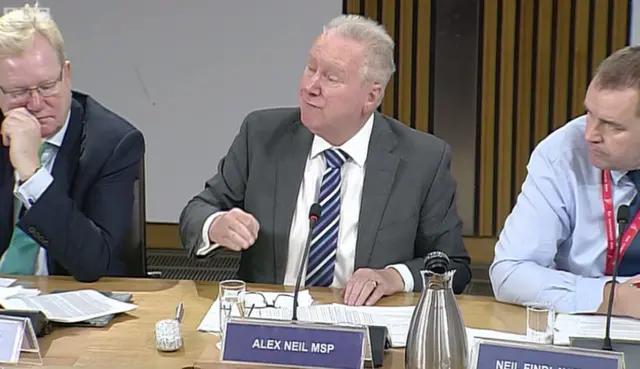 Image source, bbc
Image source, bbcMr Neil asks if recommendations seven and eight in the review maximise patient safety.
Dr Agur says; "I believe these conclusions could have done more to ensure safety of women considering these procedures."
Mr Neil asks if members of the review group were "nobbled" and Dr Agur says no.
The clinician says further studies have backed the interim report's finding
